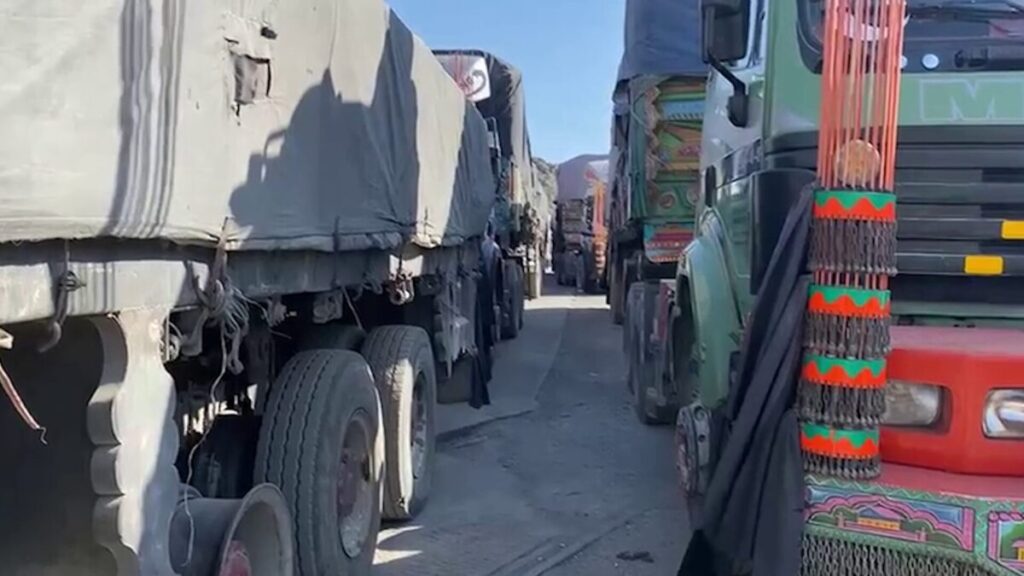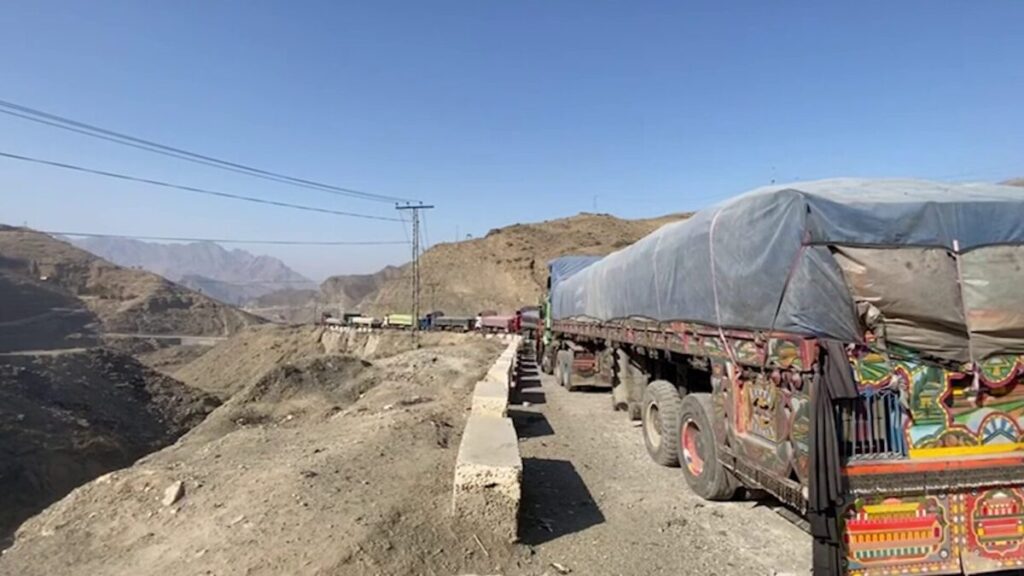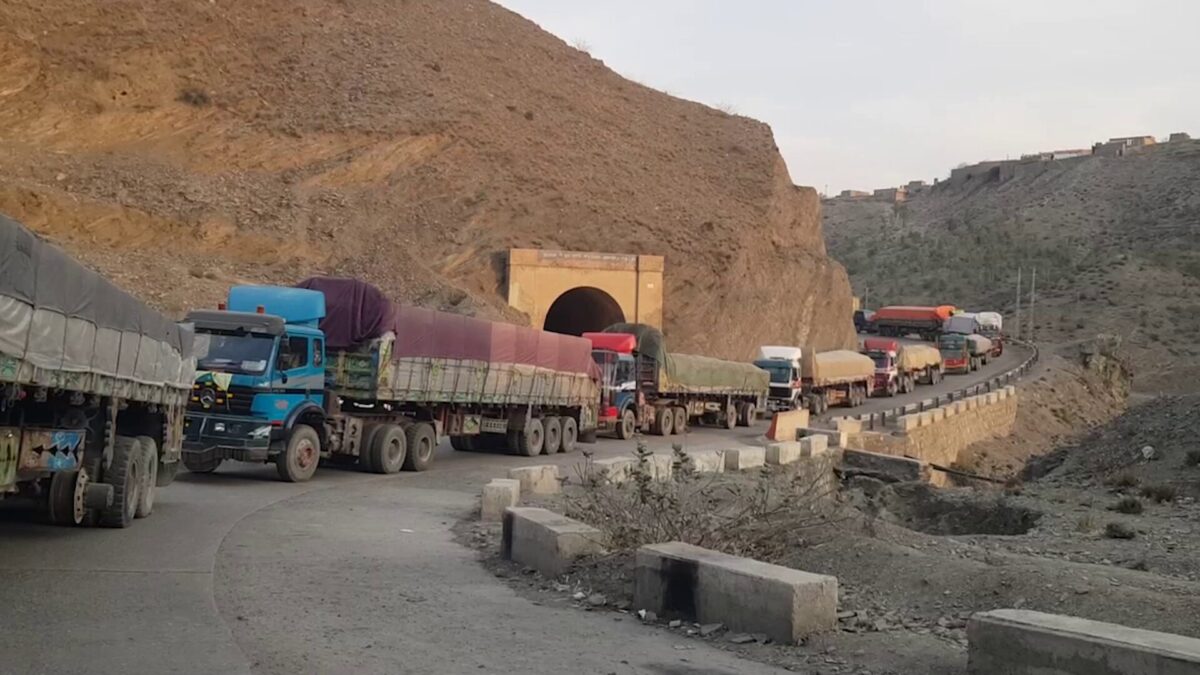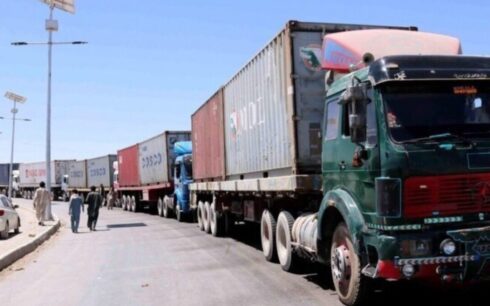KABUL, Afghanistan — For nearly a month, several trucks carrying Afghan commercial goods have been stranded at the Torkham border crossing due to a significant increase in customs tariffs by Pakistan.
Drivers report that Pakistani authorities are demanding temporary entry permits that must be obtained in Afghanistan, yet they are not allowed to return to Afghanistan to secure these documents.
Dozens of Afghan freight trucks have been waiting on the Pakistani side of the Torkham crossing, blocked by Pakistani police. Khan Mohammad, a driver, expressed his frustration: “We want permission to return to our country and handle our cargo. We have been stuck here for a month.”

Trucks crossing the border are required to obtain temporary entry permits from their respective countries. Afghan drivers are now requesting permission from Pakistan to return home and secure these permits.
“Without releasing our trucks, how can we get the permits?” asked Abdul Rahman, another driver. “We urge both governments to resolve this issue. The Taliban have previously released Pakistani trucks without permits, but Pakistan won’t release ours.”

The Afghanistan-Pakistan Joint Chamber of Commerce stated that Islamabad has increased customs tariffs on Afghan fruits and vegetables, with some tariffs rising by 1,000 percent.
The new Pakistani customs tariffs per ton are as follows:
- Tomatoes: increased from 1,100 PKR ($3.80) to 8,950 PKR ($31.00).
- Melons: increased from 15,314 PKR ($53.00) to 60,673 PKR ($210.00).
- Grapes: increased from 19,538 PKR ($68.00) to 77,000 PKR ($270.00).
- Pomegranates: increased from 27,457 PKR ($95.00) to 108,395 PKR ($380.00).
- Watermelons: increased from 6,856 PKR ($24.00) to 43,000 PKR ($150.00).
- Cucumbers: previously tariff-free, now 14,290 PKR ($50.00).
Economic experts argue that Pakistan’s actions aim to harm Afghanistan’s domestic production, particularly during the fruit and vegetable season, by either closing border routes or significantly raising tariffs.





